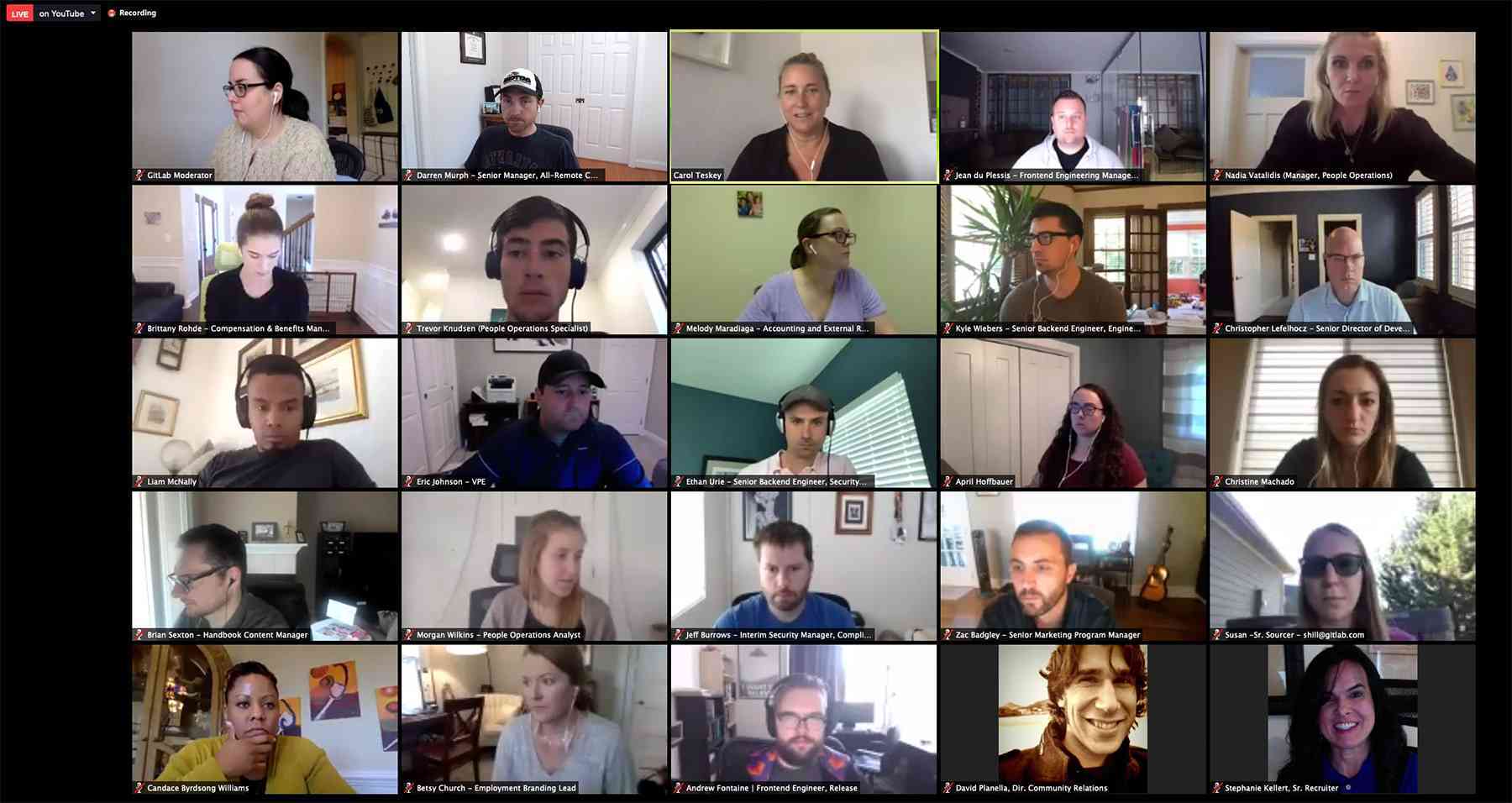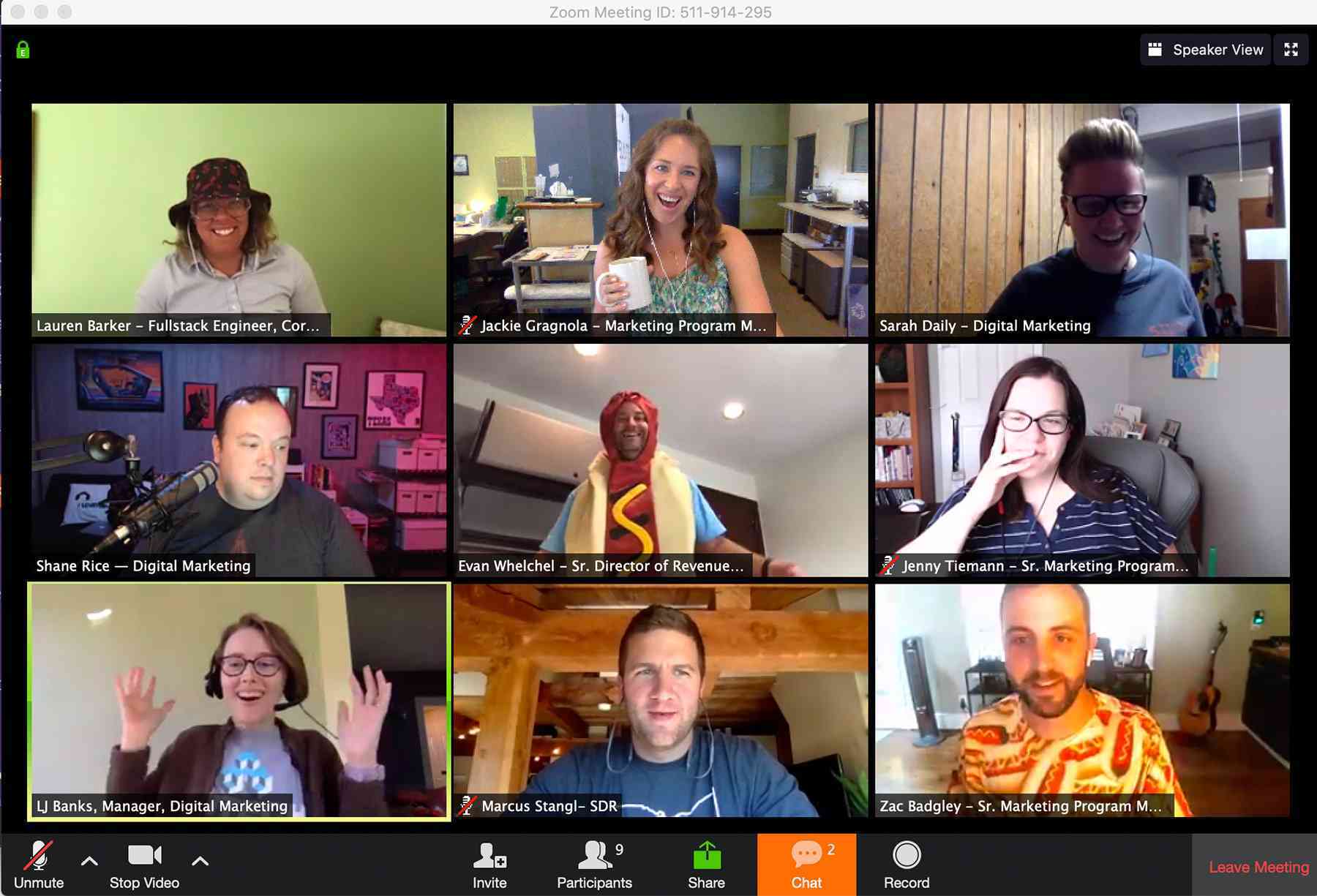Published on: December 10, 2019
6 min read
5 Ways to build a more productive remote team
Hacker Noon named GitLab the world's most productive remote team – here's how we make it work.

Earlier this year Hacker Noon's community voted GitLab the world's most productive remote team. We were honored, and thought we'd share a few tips on how we make it work in hopes of inspiring more remote companies.
We're serious about efficiency
Efficiency isn't just something we strive for. It's a value at the heart of every decision. By enabling our all-remote team to work from wherever they're most fulfilled, GitLab team members enjoy the built-in efficiency of time saved from no commute.
We also realize that no single person can design the perfectly efficient day for someone else. That's why we empower people to be a manager of one. When there's no clock to punch and no one watching you work, you're incentivized to be highly efficient. This is manifested in our obsession with documentation and our bias for asynchronous communication.
 Working while flying creates more time to explore.
Working while flying creates more time to explore.
We're also transparent, which leads to far fewer questions, less confusion, and fewer interruptions on a daily basis. When information is available to all, you're conditioned to simply look for it. This habit of self-service allows team members to enjoy longer, uninterrupted periods of work.
We look at meetings differently
When your team is spread across a myriad of time zones, and you're given a travel stipend to crisscross oceans and meet your colleagues, you're forced to see meetings in a different light. Part of what drives our productivity as a global team is our resistance to defaulting to a meeting.
 Meetings are a judgement-free zone.
Meetings are a judgement-free zone.
We default to documentation instead, which allows each individual to contribute insights and discussion during a time that suits them. This also allows people to properly digest a situation and create a considered response, rather than vocalizing whatever is top of mind.
Despite our best efforts, some meetings are unavoidable. We require each meeting to have a pre-defined agenda and for notes to be taken for those who cannot attend live. We don't bother with prettying up the background, since meetings should be about the work. We're also known to turn weekly all-hands meetings into podcasts.
 Seriously, we mean it. Meetings are a judgement-free zone!
Seriously, we mean it. Meetings are a judgement-free zone!
The element that's most counter to conventional wisdom? We give each team member the liberty to take their focus off of the meeting if an agenda item does not pertain to them. We don't judge people for looking away and working on other tasks, and it's not rude to ask someone to repeat something if you're looped back into a conversation.
We focus on results, not vanity metrics
We're able to maintain a high level of productivity by valuing results over inputs. It's true that what gets measured gets done. At GitLab, we publish our Objectives and Key Results (OKRs), ensuring that anyone in the company – and even outside of the company – knows exactly what matters. If it's not an OKR, it's not a priority.
In colocated environments, it's easy to favor people you see more often. In turn, it becomes easy to justify vanity metrics – things like appearing in the most meetings or being seen as the last to leave the office. Metrics like these do not propel a business forward in a meaningful way, and yet they often supercede productive effort.
If these vanity metrics are rewarded via praise or promotion, it creates a dysfunctional culture where appearances trump excellent work.
We iterate with short toes
GitLab looks at iteration in a way that feels unnatural to most. Across the company, we encourage the smallest possible change that makes an improvement. If you feel a twinge of embarrassment about the minimal nature of your first shipped feature set, you're on the right track.
Our productivity is bolstered by a shared embrace of something that is actively discouraged in most organizations. When you iterate minimally and quickly, it's easier to roll things back. It's easier to pivot, or gently change course. If you're completely off-base, you'll realize it before you've sunk a catastrophic amount of time into a project.
One of the biggest killers of productivity is the fear of stepping on someone's toes, or veering too far into a lane that's owned by someone else. At GitLab, we have short toes. We actively work to improve our comfort level with others contributing to varying domains. When there's no ego and no long toes to mash, it creates an inclusive culture that invites innovation.
We answer questions with links
In the above GitLab Unfiltered video, GitLab team members discuss the benefits of widespread documentation with Job Portraits' co-founder Miki Johnson.
Doing the same thing twice hinders productivity. Repeating the answer to a question dozens of times – a common predicament when scaling a team and addressing new hire concerns on a continual basis – is even worse. Unnecessary repitition not only hampers productivity, but it wears down the person answering the same questions.
GitLab's handbook is over 3,000 pages (and counting), and while we do not expect any single team member to read everything, its searchable nature means that it can be read and leveraged precisely when it's needed. Because of this, we're conditioned to ingest every question by first wondering if the answer is already documented.
In the event that the answer to your question is not documented, we take a handbook first approach to answering. In other words, we document solutions to unanswered inquiries in order to make our future selves more productive. We answer it once, with a documented link, to prevent repetition in the future. If the answer needs to be updated with time, future team members can use a merge request to iterate – an exercise that's far more productivity than rewriting from scratch.
We want to hear from you
Enjoyed reading this blog post or have questions or feedback? Share your thoughts by creating a new topic in the GitLab community forum.
Share your feedback